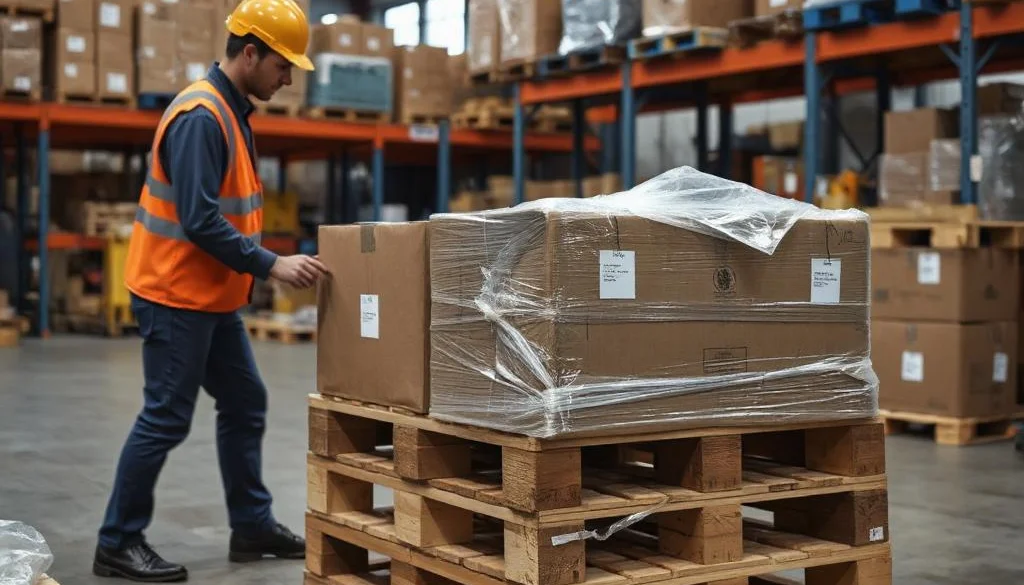
Key Market Trends in the Pallet Industry
Market Trends in the Pallet Industry place the pallet sector at the forefront of logistics and supply chain solutions, evolving rapidly with advances in technology and shifts in global market demands. This comprehensive analysis explores the major trends currently shaping the pallet industry, from sustainability initiatives to technological integrations. Moreover, understanding these market trends in the pallet industry helps businesses stay competitive and adapt to ever-changing consumer expectations.
1. Sustainability and Eco-Friendly Solutions
Environmental responsibility is driving significant change in the pallet industry. For instance, companies are increasingly adopting pallets made from eco-friendly materials to minimize their environmental impact. Moreover, this shift reflects growing consumer demand for sustainable practices. As a result, businesses that prioritize eco-friendly solutions gain a competitive edge in the market.
- Recycled Materials: Pallets made from recycled plastics and composites offer a sustainable alternative to traditional wood, reducing landfill waste and promoting resource reuse.
- Biodegradable Options: Innovations such as corrugated paper pallets present biodegradable solutions that complement efforts toward environmental sustainability.
- Learn more about our eco-friendly palletizing solutions.
2. Smart Pallets and IoT Integration
Market Trends in the Pallet Industry showcase how technological advancements have introduced smart pallets, enhancing tracking and monitoring capabilities across the supply chain. For example, these pallets provide real-time data on location and environmental conditions. Moreover, this technology improves efficiency and reduces losses during transit. As a result, businesses can optimize their supply chain operations more effectively, staying ahead in a competitive market.
- Real-Time Tracking: Smart pallets equipped with IoT sensors deliver critical data, including location and environmental conditions. This innovation ensures that goods stay under optimal conditions throughout their journey, making smart pallets a key player in modern supply chain management.
- Industry Applications: These technologies are particularly beneficial in sectors like pharmaceuticals and food, where maintaining certain conditions is crucial.
- Explore how IoT integration enhances logistics.
3. Customization and Lightweight Design
Demand for customized and lightweight pallet designs is growing, driven by the need to reduce shipping costs and adapt to specific logistic requirements.
- Custom Solutions: Market Trends in the Pallet Industry highlight the growing demand for tailored pallets, designed to match unique product specifications. These customized solutions secure cargo effectively and reduce the risk of damage during transit. This trend in customization enhances safety and reliability throughout the shipping process, reflecting the evolving needs of modern logistics.
- Lightweight Materials: Market Trends in the Pallet Industry emphasize advancements in materials technology, which have led to the development of lighter pallets. These innovative designs reduce fuel consumption and CO2 emissions without compromising strength, aligning with sustainability goals in modern logistics.
4. Recycling and Circular Economy Initiatives
The push towards a circular economy is influencing pallet design and usage, emphasizing the recyclability and reusability of pallet materials. For instance, many companies now focus on creating pallets from fully recyclable materials. Moreover, reusability reduces waste and lowers overall production costs. As a result, businesses can align their operations with sustainability goals while improving efficiency.
- Pallet Recycling: Extensive recycling programs for wood and plastic pallets contribute to sustainable practices by extending the lifecycle of materials.
- Repair and Reuse: The industry promotes repairing damaged pallets rather than discarding them, significantly reducing industrial waste.
5. Regulatory Compliance and Safety Standards
As international trade grows, compliance with global regulations and safety standards becomes increasingly important for pallet manufacturers.
- ISPM-15 Compliance: Wood pallets are treated according to international standards to prevent pest transmission during shipping.
- Safety Protocols: Compliance with health and safety guidelines ensures pallets are suitable for use in diverse industries, including food and pharmaceuticals.
- Learn about our compliance with international shipping regulations.
Conclusion
The pallet industry is experiencing rapid transformation, driven by advances in sustainability, technology, and global compliance standards. By embracing these trends, the industry not only enhances operational efficiency but also contributes to global environmental goals, positioning itself as a key player in the future of logistics and supply chain management.




